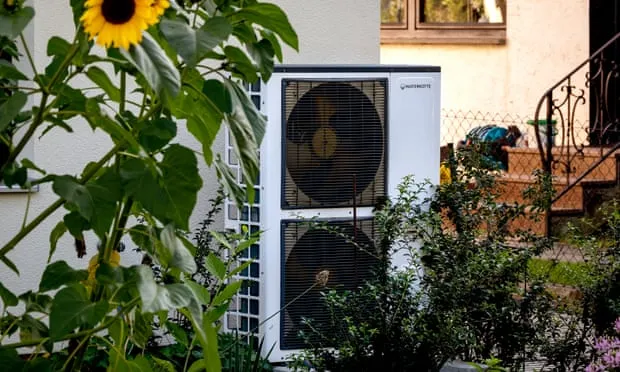Heat pump uptake is rising in many countries as fossil fuel energy prices have soared following the invasion of Ukraine and as governments seek to reach net zero greenhouse gas emissions.
But the UK has lagged far behind. France, for instance, installs 10 times as many heat pumps as the UK, where many people are unfamiliar with them and doubts about their efficacy have been widely publicised. Reports have spread that they do not work well in low temperatures despite their increasing use in Scandinavia and other cold climates.
The research, published in the specialist energy research journal Joule, used data from seven field studies in North America, Asia and Europe. It found that at temperatures below zero, heat pumps were between two and three times more efficient than oil and gas heating systems.
Dr Jan Rosenow, the director of European programmes at the Regulatory Assistance Project and co-author of the report, said: “There has been a campaign spreading false information about heat pumps [including casting doubt on whether they work in cold weather].
The study was funded by The Crux Alliance (who is pro energy efficiency and ending fossil fuel dependencies) but that that should be seen in the light of this study also countering a campaign that was spreading false information (no doubt by a pro fossil fuel lobby organisation). I’m not saying this study is incorrect (it is multiple sources, and multiple universities), but anyone wanting to invest in heating solutions should probably give serious consideration to heat pumps. The Guardian does also give a link showing that their investigative journalists did find some suspicions around the behaviour of the gas boiler lobbyists.
The key issue though, like with many purchases, is not to only consider the upfront costs of a purchase and installation. One also has to look at running costs, and possibly how those will be affected over a 5 or 10 year period. In my country certainly, the cost of fossil fuels has been getting dramatically more expensive, and although electricity prices have also been going up sharply, the use of solar energy etc has vastly offset those electricity increases. So, a lot to consider, but it should be considered when making such an investment over a longer term.

